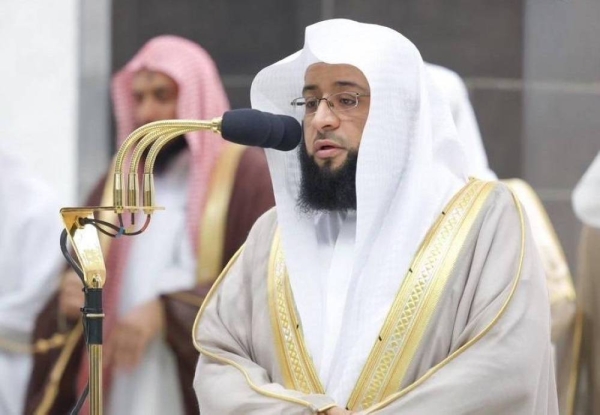Custodian of the Two Holy Mosques, King Salman, recently issued an order to appoint four new imams at the Grand Mosque in Makkah and the Prophet’s Mosque in Madinah. The announcement was made by Sheikh Abdulrahman Al-Sudais, who heads the Presidency for Religious Affairs of the Grand Mosque and the Prophet’s Mosque. The royal order appointed Sheikh Badr Al-Turki and Sheikh Al-Waleed Al-Shamsan as imams of the Grand Mosque in Makkah, while Sheikh Muhammad Barhaji and Sheikh Abdullah Al-Qarafi were appointed as imams at the Prophet’s Mosque in Madinah.
Sheikh Abdulrahman Al-Sudais expressed his gratitude to King Salman for appointing the new imams, emphasizing the importance of their roles in leading prayers at the holiest sites in Islam. The appointment of these imams is significant as they play a crucial role in guiding and leading worshippers during prayers at the Two Holy Mosques. The imams are responsible for setting the tone and atmosphere for prayer, as well as delivering sermons that offer spiritual guidance to the millions of Muslims who visit these sacred sites each year.
Sheikh Badr Al-Turki, one of the newly appointed imams at the Grand Mosque in Makkah, is known for his strong recitation of the Quran and his ability to connect with worshippers through his sermons. Similarly, Sheikh Al-Waleed Al-Shamsan is highly respected for his knowledge of Islamic teachings and his ability to inspire those who attend his prayers. At the Prophet’s Mosque in Madinah, Sheikh Muhammad Barhaji and Sheikh Abdullah Al-Qarafi will lead prayers and deliver sermons that offer guidance and inspiration to worshippers.
The appointment of these new imams at the Two Holy Mosques reflects King Salman’s commitment to upholding the spiritual importance of these sites and ensuring that worshippers have access to qualified and dedicated religious leaders. The imams have a profound influence on the spiritual experience of those who visit the Grand Mosque in Makkah and the Prophet’s Mosque in Madinah, and their role is central to the practice of Islam for millions of Muslims around the world. By appointing qualified and respected imams, King Salman is demonstrating his dedication to preserving the sanctity and significance of these holy sites.
The newly appointed imams are expected to uphold the highest standards of religious knowledge and leadership, providing guidance and inspiration to worshippers who visit the Two Holy Mosques to perform prayers and seek spiritual enlightenment. Their role extends beyond leading prayers to offering counsel and support to those in need, as well as promoting tolerance and understanding among worshippers of different backgrounds. The imams serve as spiritual guides for the Muslim community, upholding the teachings of Islam and promoting unity and harmony among believers.
Overall, the appointment of four new imams at the Two Holy Mosques by King Salman reflects a commitment to promoting the spiritual well-being and guidance of worshippers who visit these sacred sites. The imams play a crucial role in leading prayers, delivering sermons, and offering guidance to millions of Muslims who come to Makkah and Madinah each year. Their appointment is a testament to the importance of religious leadership in guiding the Muslim community and upholding the teachings of Islam. As spiritual role models and guides, the imams at the Two Holy Mosques hold a special significance in the hearts of believers and are entrusted with the sacred duty of leading worshippers in prayer and reflection.































